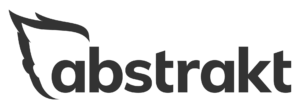

SEO isn’t just about finding the right keywords and sporadically putting them across your website. There must be a strategic plan in place to achieve the results you want. To do that, you must develop an SEO content marketing strategy.
With the right SEO content marketing strategy in place, you have the opportunity to get in front of more users who are actively looking into your subject matter expertise. Let’s get into what SEO content is and how to effectively plan, implement, and optimize your SEO content marketing strategy.
What Is SEO Content?
Search engine optimization (SEO) content is a digital marketing strategy that refers to any content created specifically to improve rankings and visibility in search engines like Google and Bing. These pieces of content can include blog posts, thought leadership articles, and other content marketing materials.
The goal of SEO content writing and distribution is to understand what potential customers in your target market are looking for and create content that answers their questions clearly and comprehensively. This requires strategic keyword research, thoughtful content development, and technical optimization best practices.
SEO content serves two key functions. First, it aims to provide value to readers by offering useful, relevant information that solves their problems. Secondly, elements like keywords, formatting, media, and links are strategically optimized to help search engines understand the content and rank it higher in results.
Why SEO Content is Important
SEO content helps businesses earn organic, unpaid traffic from search engines, increasing brand visibility and conversion opportunities. With 93% of online experiences beginning with a search engine, ranking well for strategic keywords can massively grow your reach.
Crafting content for SEO also helps establish subject matter authority and expertise. As searchers find your informative content, you build trust and credibility.
What’s the Role of Keywords in SEO Content?
Keywords are at the crux of SEO content. These are specific words and phrases searchers enter into search engines that indicate their intent. Including keywords naturally throughout content signals bots what the content is about.
Matching high-traffic, low-competition keywords ensures content targets topics and questions with significant search volume that you can realistically rank for. However, it’s important to do market research to ensure keywords align with your industry’s business model. Ensure the reasoning for these keywords is relevant and aren’t quick grabs at picking up on trending keywords.
For more insight into the role keywords play in SEO, read our blog here.
What are SEO Entities?
SEO entities refer to the various elements or entities that search engines use to understand and rank web content. These entities are an integral part of their efforts to provide more relevant and contextually accurate search results to users.
An entity in a database is a thing, place, person, or object that is independent of another. In databases, you store information about things in the real world, and these things are database entities. In database management, the technical definition of an entity is a thing in the real world with an independent existence. An entity is uniquely identifiable. An entity doesn’t require a certain function; it just exists.
SEO entities haven’t always been as crucial in search engine marketing as they are today. In 2020, Google decided that they wanted to switch to a more entity-based approach. This is to ensure that what users (or their “customers”) are searching for get the results that align with the intent of their search.
Here are some key SEO entities and their significance in B2B marketing:
Keyword Research and Selection
Conducting thorough keyword research is a crucial first step when developing an SEO content strategy. Selecting the right keywords and phrases to target will inform the focus and optimization of your content to attract qualified visitors.
There are a variety of free and paid tools available to research keyword search volume, competition levels, and other data to guide your keyword selection, such as:
- Google Keyword Planner
- Moz Keyword Explorer
- SEMRush
- Ahrefs
These tools can help you identify valuable long-tail keyword opportunities to target in your content that align with your goals.
Choose the Right Keywords for Content
When researching keywords, aim to select terms that have high search volume and relevance to your content goals, while having low-moderate difficulty rankings. Additional tips include:
- Prioritize keywords matching buyer intent
- Leverage keyword grouping and related terms
- Consider growing and trending terms
- Identify trending topics to cover
Properly researching and selecting strategic keywords will enable you to shape content that ranks well and converts visitors.
Abstrakt’s SEO lead generation experts follow an entity-based SEO strategy to help clients get in front of more users who are actively searching for their product or service. Explore our inbound marketing solution here.
How to Optimize Content for SEO-Value
Ensure SEO Content is High-Quality and Relevant
Creating excellent, useful content should be the foundation of any content strategy. Useful content that engages visitors and provides value aligns with the search engine’s goal to connect searchers with the best results.
High-quality content should be unique content or content that helps answer the search questions thoroughly. If your content leaves the reader more confused, it might not be high-quality. Therefore, ensure content offers insightful commentary, expert opinions, original research, and data, or other elements that demonstrate quality and reliability as a resource for users.
Link Content From One Page to Another
Internal linking is vital for optimizing content as it enhances website navigation, user experience, and SEO.
By linking related pages within a website, it guides visitors to relevant information, reducing bounce rates and increasing session duration. This interconnected web of links also aids search engine crawlers in understanding the structure and hierarchy of the site, which can improve indexing and ranking.
Furthermore, strategic internal linking distributes link equity across pages, boosting the authority of important content. Effective internal linking strategies facilitate seamless navigation, enhance user engagement, and ultimately contribute to improved visibility and organic traffic.
To get a complete look into ways you can optimize web content for search engines, read our blog here.
How to Apply Entity SEO to Your Content Strategy
Here is a step-by-step process to incorporate entity SEO into your overarching SEO strategy:
- Step 1. Identify Your Core Pillars: Determine the main categories, products, services, or locations your brand focuses on. These will dictate your primary Entities.
- Step 2. Keyword Research: Use keyword research tools to find high-potential keywords centered around your company’s main Entities.
- Step 3. Plan Entity-Focused Content: Map out blog posts, guides, product pages, etc., optimized specifically around Entity-based keywords.
- Step 4. Implement On-Page SEO: Actually create optimized on-site content, focusing closely on those Entity keywords/topics.
- Step 5. Promote Your Best Entity Content: Build internal links between related Entities. Promote your best performer through social media, outreach, etc., to get in front of more potential buyers in your target audience.
- Step 6. Track SEO Results: Use analytics to identify which Entity-optimized content is performing best. Double down on those areas.
Rinse and repeat the process, expanding to additional Entities over time. This creates powerful clusters of interlinked, topic-focused content, which helps search engines understand your brand’s niche and relevance.
How to Track the Success of Your SEO Content
Analyze Search Engine Rankings
Monitoring search engine rankings is an essential aspect of tracking SEO content success over time. Some key ranking factors to analyze regularly include:
- Keyword Rankings: Are target keywords climbing in rank for priority pages and posts month over month?
- Mobile vs. Desktop: Do rankings differ between mobile and desktop? Optimize accordingly.
- Competing Domains: Who ranks above you for core keywords, and what can you learn from them?
- Click-Through-Rate: Analyze CTR to ensure high-ranking content also engages users.
Search engine result rankings serve as a benchmark for overall SEO progress. While rankings are not the only KPI, sustaining improvements indicates that ongoing optimization efforts are succeeding.
Monitor User Metrics or Traffic Analytics
In addition to search engine rankings, other insightful SEO metrics to track regularly include:
- Organic Traffic: Steady increases in monthly organic traffic reflect strengthening SEO.
- Bounce Rate: Lower bounce rates indicate content is resonating with visitors.
- Pages/Session and Duration: Higher engagement stats show content quality and relevance.
- Conversion Rates: Monitor conversion rates for traffic referred to from organic searches.
- Crawl Stats: Tracking crawl stats helps diagnose technical SEO issues.
Blending together rankings data, site analytics, and other metrics provides a 360-degree view of SEO content performance. Monitor these factors over time, and tweak content initiatives based on the results.
When gathering and monitoring metrics, it’s important to first set a goal for each piece of content… what do you want users to do with the content you’ve presented them? Do you want more keyword growth or to generate traffic? Should users convert on that page, or should they be directed to another page for conversion?
For example, if you are looking to generate email signups, creating a monitoring goal for traffic to the page and conversion rate from traffic (newsletter signups) is a way to evaluate these areas.
Learn how to effectively track your website’s SEO performance by reading our blog here.
Ways to Improve Your SEO Content Strategy
As search engines and user behavior evolve, so must SEO strategies. Remaining adaptive and continuously optimizing campaigns is crucial for long-term success. With Google consistently rolling out algorithm updates each year, SEOs must vigilantly monitor rankings and metrics to identify new opportunities or threats.
One of the biggest ongoing SEO trends is the shift towards a more semantic search — understanding user intent and meaning behind queries instead of just matching keywords. This requires optimizing content in a more natural, comprehensive way aligned with searcher needs. Site architecture, internal linking, quality backlinks, and rich media also grow in importance.
Some best practices for constant SEO optimization include:
- Regularly analyze site analytics data, search performance, and ranking reports
- Conduct quarterly website audits checking technical SEO, on-page factors, etc.
- Identify new relevant keywords and update content accordingly
- Add schema markup to pages to improve rich result standings
- Include more interactive elements like charts, videos, and assessments to boost dwell time
Perform Regular Content Audits
An SEO content audit is a systematic examination of your website’s existing content to assess its performance, relevance, and alignment with SEO goals. It involves evaluating factors like keyword optimization, readability, user engagement, and content freshness.
There are many things to look for as you perform content audits. First, take the page link and input it into your keyword research tool to see what keywords are ranking and what kind of traffic is coming into the page. If it’s minimal on both, look at the page itself and see where it may be lagging.
Does the page content align with the intent of the keyword you want to rank for? Are there little to no calls to action? Is there any imagery to break up long-form content into digestible chunks? Has the content been updated in the last six months?
If not, it’s worth the rewrite to add new insights and explore what kind of content you’re missing within the piece. During this process, take a look at competing blogs to see what they’re doing differently to rank higher on the search engine results page (SERP), and apply those concepts to your new piece.
Conducting an SEO content audit is vital for improving your SEO strategy because it helps identify strengths, weaknesses, and areas for improvement in your content. By addressing these issues, you can enhance search engine rankings, attract more organic traffic, and provide a better user experience. It ensures that your content aligns with search engine algorithms and user expectations, ultimately leading to improved online visibility and business success.
Read our blog here for an inside look into how we perform content audits for both our clients and our own SEO lead generation strategy.
Be Adaptive in a Changing SEO Landscape
As search engine algorithms evolve, strategies that were once effective can lose their edge or even get sites penalized. SEOs must remain vigilant in tracking updates that impact rankings and be ready to pivot approaches accordingly.
Some recent changes that have forced shifts in best practices include:
- Increased weighting of page speed and mobile optimization
- Greater focus on securing high-quality backlinks from authority sites
- Emphasis on long-form, comprehensive content over keyword stuffing
- Leveraging interactive elements like videos, quizzes, calculators, etc.
Reach Out to a Professional SEO Content Marketing Agency
While many people are using AI to generate SEO content these days because it’s quick and easy, it’s not a substitute for professionals. AI content can only go as far as you can guide it, which means you need to have an expert there to provide unique insights and consistently measure the effectiveness of your SEO content marketing strategy.
When you partner with a professional SEO content marketing agency, they have the knowledge and expertise to effectively use AI with a touch of their magic to help your business stand out from the sea of competitors. Additionally, having an experienced SEO or agency partner helps you stay on top of the latest updates and adjust your strategy accordingly.
They can also help identify issues early before penalties happen. Some key signals that your current efforts are losing effectiveness include:
- Declining organic traffic and conversions quarter-over-quarter
- Losing rankings for important head term keywords
- Seeing competitors leapfrog your positions for critical keywords
- Getting manual search engine penalties like messages saying the site violates quality guidelines
Explore how outsourcing SEO services can help you optimize your website and generate more consistent leads here.
Growing Trends in SEO Content Marketing
Many experts predict SEO will only grow more semantic-focused in the years ahead. SEO entities, being one of the search engine’s key evolutions towards understanding meaning and intent, will likely take on greater weighting.
Entities help search bots better comprehend the underlying topic and real-world object/thing behind queries to match them to appropriate sites. Websites that strategically optimize content to leverage relevant entities gain an advantage by being better aligned to searcher intent.
Some future SEO trends where entities will play a pivotal role include:
- Voice search optimization requires proper entity optimization so bots understand requests
- Personalization requires understanding user preferences, and intents tied to their past entity interactions
- Analyzing entity volume and search patterns will help identify new content opportunities
- Optimizing for long-tail, conversational queries with entities key to natural language success
In many ways, the SEO experts who best leverage entities in their approach will have a competitive advantage as the field continues progressing toward semantic search. It is vital for modern campaigns. The sites that communicate most clearly and comprehensively with entities related to their subject matter help search bots match them to relevant queries.
In optimizing for entities, best practices include properly tagging and categorizing pages based on topic entities; using schema markup to identify key entities, and organically referencing relevant entities in content without over-optimizing. With intelligent entity optimization, SEO marketing teams can equip their sites for the coming waves of search innovation.
Key Takeaways
SEO content plays a major role in search engine marketing and digital marketing as a whole. Without an SEO content marketing strategy in place, you limit the impact of getting organic traffic to your website, which could generate leads or even leads to customers.
SEO content marketing is a great lead generation solution for businesses to apply to their growth efforts because it brings in traffic from users who are actively looking for a product or service solution to their pain points. While it may be effective, it’s a time-consuming process that requires diligent work and action from professionals. Luckily, there are outsourced SEO lead generation companies out there that can help you generate more ready-to-buy leads while you spend more time focusing on everyday business functions.
That’s where Abstrakt comes in to help. The SEO lead generation experts at Abstrakt have all the tools, industry insight, and expertise to build and sustain an SEO content marketing strategy that yields long-term results. When you’re ready to get the most impact from your online marketing efforts, contact the SEO specialists at Abstrakt!











